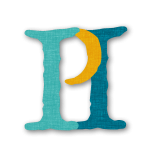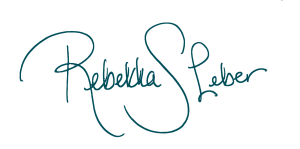We’ve all done it at some point – built a story to fit within the framework of a kick-ass world we’ve created. Writers get so wrapped up in playing God by designing beings, shaping geographic features, creating languages, or constructing epic histories that trace backwards through a dozen generations, that they completely forget what the hell they are supposed to being doing – telling a story. Writing isn’t about building a world, it’s about writing the story that could only happen in the world that has been built.
Crafting a story is a complex process, and building a world to serve as a rich setting is important, especially in speculative fiction. Setting is one of the five elements required in a proper story. Setting helps to understand character personality and development. It can serve as an obstacle creating conflict, or help to move the plot forward. The problem occurs when a writer focuses all their energy on creating the world, and no time focusing on the story that takes place within said world.
Back in January of 2015, on an episode of Fiction School, co-host Tommy Zurhellen discussed one of the biggest mistakes he sees made by his students. In his humorous story about “Scantron 7”, Zurhellen explains that when he asks writing students about their story, they spend several enthusiastic minutes describing their setting, their characters, elaborate government or belief system, the epic conflict that rocked the world a thousand years ago… but when asked the question, “Yeah, but what is your story actually about?” they draw a blank.
At the end of the day, no matter how epic and elaborate the setting or how fleshed out the characters, if there is no story at the core, or worse, no conflict to drive that story forward, then the writer really has nothing but a cool place with cool people.
To avoid falling into this trap, a writer must keep in mind that every addition they make to their world needs to be relevant to the story. That is, anything about the world worth mentioning. As the writer, there is nothing wrong with knowing every corner of the created world. That does not mean that the reader needs to know all those inane details. The more fleshed out the writer makes the world, the more real it will feel, but providing a millenia of history or recounting the entire text of a holy book is simply not necessary for the reader to understand the significance of a religious or historic event on the modern day.
As a writer, you can never know too much about the world within the story, because you never know what information will become useful later on, or my inspire new story lines. But, it is possible for a writer to tell their readers too much about their world. Avoid info dumps, and save that information for supplemental content (like rewards for people who support you on Patreon!) or later stories in the same world. Or, if you feel really bold, incorporate the method used by the author of Nevernight, Jay Kristoff. When the opportunity for history or cultural knowledge to came up in the story, instead of dropping a load of backstory that broke with the narrative, Kristoff simply placed an asterisk in the text, and kept moving on with the story. At the bottom of the page, he included footnotes for each symbol. This strategy worked perfectly, giving the reader the choice to break the narrative to read the footnote, or to keep reading until the end of the page or the chapter, and come back to read the backstory about a god, a cultural practice, or reference to a historical event in the history of the world.
If readers truly love the world a writer crafts, they will come back for more. The trick is leaving enough for the readers to have a reason to return. Giving away too much in the beginning does one of two things- overwhelms the reader, boring them with over-information, or satisfies them to the point there are no questions left for them to answer.
If you’d like some help training your world building muscle, sign up to beta test our Worldbuilding Workshop taking place on June 25th thru July 8th by sending an email to indiepenink@gmail.com with the word “Inkademy” in the subject line.
And, keep an eye out for announcements on the opening of the Research-a-Torium, which we hope to build into the ultimate world building resource!
Write on young savior,



